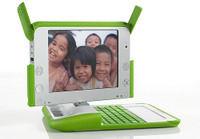This week I head to Green Bay Wisconsin to conduct a full day workshop for middle and high school teacher in strategies to increase rigor and relevance while supporting literacy in the content areas. The talk is sponsored by the Literacy Center at CESA 7
The Literacy Center is pleased to bring Peter Pappas back to our region after resounding requests from last year. Boost student achievement with rigor, relevance and literacy strategies. This workshop is designed for secondary school teachers of all disciplines. It will demonstrate that teachers don’t have to sacrifice content to help their student achieve academic success. Participants will find out how to support their subject area while building student literacy skills in defining, summarizing, and comparing. This engaging workshop guarantees to be rigorous and relevant to teachers. You’ll leave with many new ideas and loads of strategies ready for use in your classroom.
I’ll bring along a TurningPoint audience response system courtesy of Christina Stellers at Turning Technologies. It allows us to engage our audience of 160 in a Socratic seminar.
I’m always making last-minute updates to my presentations, so I’ve posted a full color handout for the participants. cesa-07.pdf 1.9MB pdf
Too bad I’ll miss the Packers!

